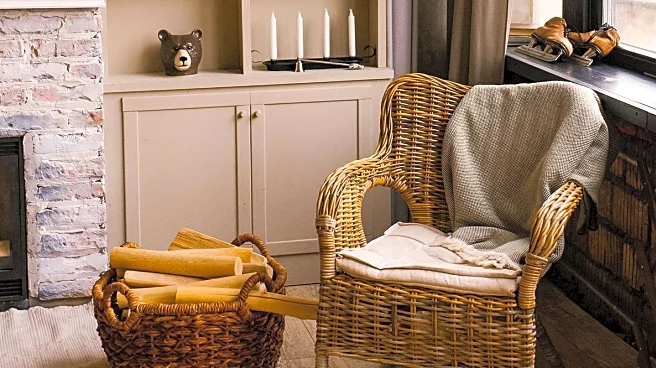What's Happening?
Interior designer Sharon Bareket has successfully completed a home design project in Atlanta, Georgia, without leaving her base in Tel Aviv, Israel. The project was for her brother and his family, who
have moved multiple times within the United States. Bareket managed the entire design process remotely due to travel constraints, utilizing video calls and photographs to make decisions on furniture placement, color schemes, and room layouts. The 300-square-meter home, situated on a 600-square-meter lot, features a mix of existing furniture and new purchases, with a focus on creating intimate spaces within the large open-plan living area. The design includes a bold use of color and wallpaper, with a particular emphasis on reusing and repurposing furniture from previous homes.
Why It's Important?
This project highlights the growing trend and feasibility of remote work in creative fields, such as interior design. Bareket's ability to manage a complex design project from afar demonstrates the potential for designers to expand their client base internationally without the need for physical presence. This approach not only reduces travel costs and time but also allows for greater flexibility in managing multiple projects simultaneously. The successful completion of this project could encourage more designers to adopt remote working methods, potentially transforming the industry and offering clients more diverse design options.
What's Next?
As remote work continues to gain traction, it is likely that more designers will explore similar methods for managing projects across borders. This could lead to increased demand for virtual design consultations and the development of new tools and technologies to facilitate remote collaboration. Additionally, clients may become more open to working with designers from different regions, broadening the scope of design influences and styles available in the market.
Beyond the Headlines
The project also underscores the importance of adaptability and innovation in the face of global challenges, such as travel restrictions. By leveraging technology, Bareket was able to maintain a high standard of design while accommodating the unique needs of her clients. This adaptability could inspire other industries to explore remote solutions, potentially leading to more sustainable and efficient business practices.








